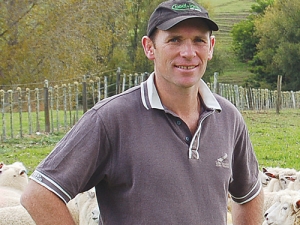Beef + Lamb NZ chairman James Parsons has warned against infighting and division becoming a characteristic of the sector.
There's been debate and frustration on the industry structure and returns, he told the BLNZ annual meeting in Waitangi.
"It's important that while we need to acknowledge the problems – problem definition is absolutely vital – we also need to focus on the things we agree on," he says in his annual report
"Whatever we focus on enlarges, and if we continue to focus on the negatives in our sector, they will become the things that consume us. It's important that we acknowledge the things that aren't going right but we also need to focus on the things that are going well. Let's build a pocket of excellence around those things and let them start growing and expanding."
Culture is important, he said.
"The culture of our sector needs to be a culture of innovation, a culture of go-forward, a culture of a can-do attitude where we get out there and take on the world in a positive way in what we do."
New Zealand culture in its values and products needs to be shared with consumers over the globe.
"It's important that we start speaking to the solution, not the problem. If we speak to the problem, what we're doing is focusing on the problem. If we speak to the solution, we actually focus on the solution."
An example is health and safety, which has been a focus; there is no doubt about the high accident rate in farming, he says.
"However, I think a lot of farmers have felt very judged and beaten up by the health and safety initiatives and WorkSafe. We're engaged very closely with WorkSafe, also at a political level, to ensure we get good outcomes. And we've done that with Federated Farmers and DairyNZ."
But that hasn't been making big headlines.
"Our way of engaging is to get in there and try to influence the decisionmakers rather than leading protests around the Beehive," he said.
However he has had calls from angry farmers ready to protest, which is useful to have in your hip pocket when talking to decisionmakers.
"We haven't quite got the quad passenger thing across the line yet but we feel we're close to coming to a good resolution with WorkSafe on that. So watch this space."
Lamb pricing is another problem. "We're not getting enough for our lambs. There are quite a few solutions: one we're focusing on is how to create more demand – both in new and existing markets."
BLNZ now has some findings from the review of the $5.5m it spends on promotional activities on behalf of the sector and farmers. They are now testing those findings with focus groups and meat companies and will soon take them to farmers.
Looking at highlights, he said after years of decline in the numbers of undergraduate students studying agriculture at tertiary institutes, there is a big upswing.
Trade deals over the last few years have now saved $161 million in total annual tariffs for the sector.
Volatility is frustrating but becoming more and more significant. Wool has had a rebound, beef is hitting new territory where a '5' in front of the schedule is now an accepted norm as opposed to a '4'.
Volatility has worked against them in sheep meat, with a disappointing year for lamb and mutton.
"Volatility is something we need to learn to manage – it's not something we can ever minimise. It's about having resilient businesses, and more reserves in our business in terms of what we do. And it's something we're deeply committed to at Beef + Lamb NZ – to help farmers manage through these things."










